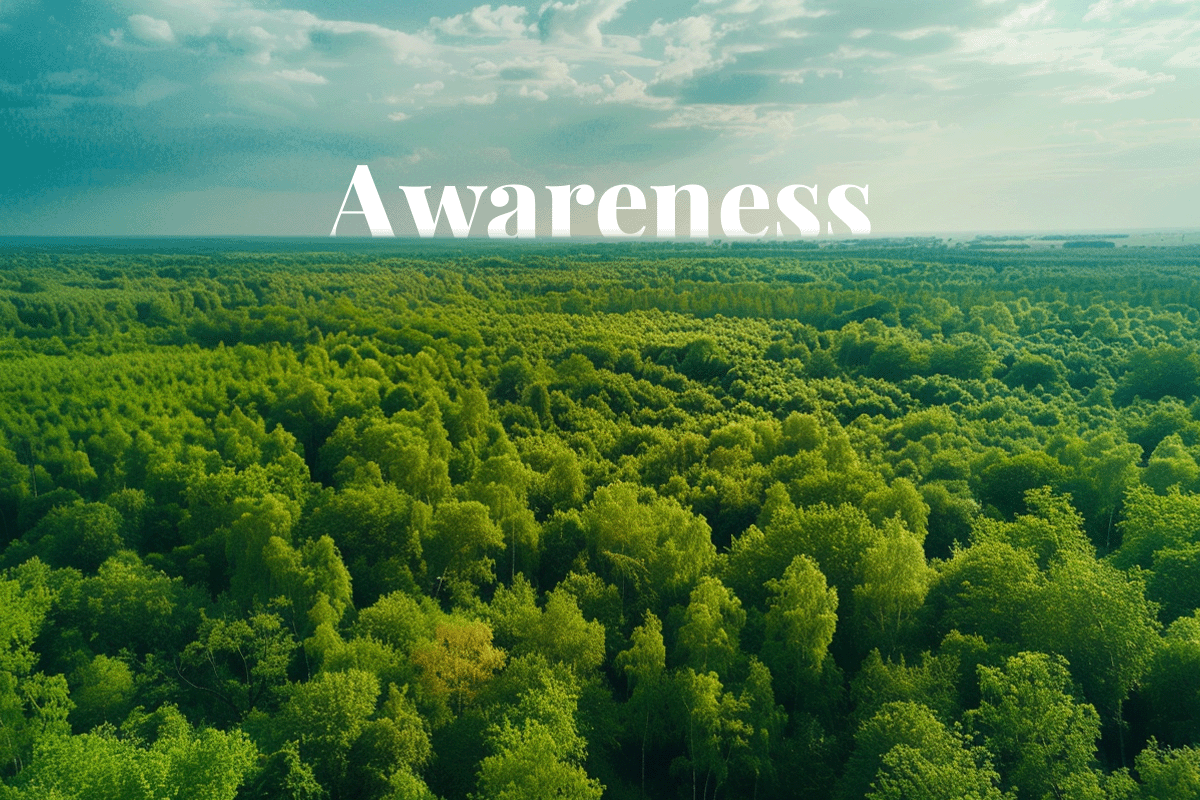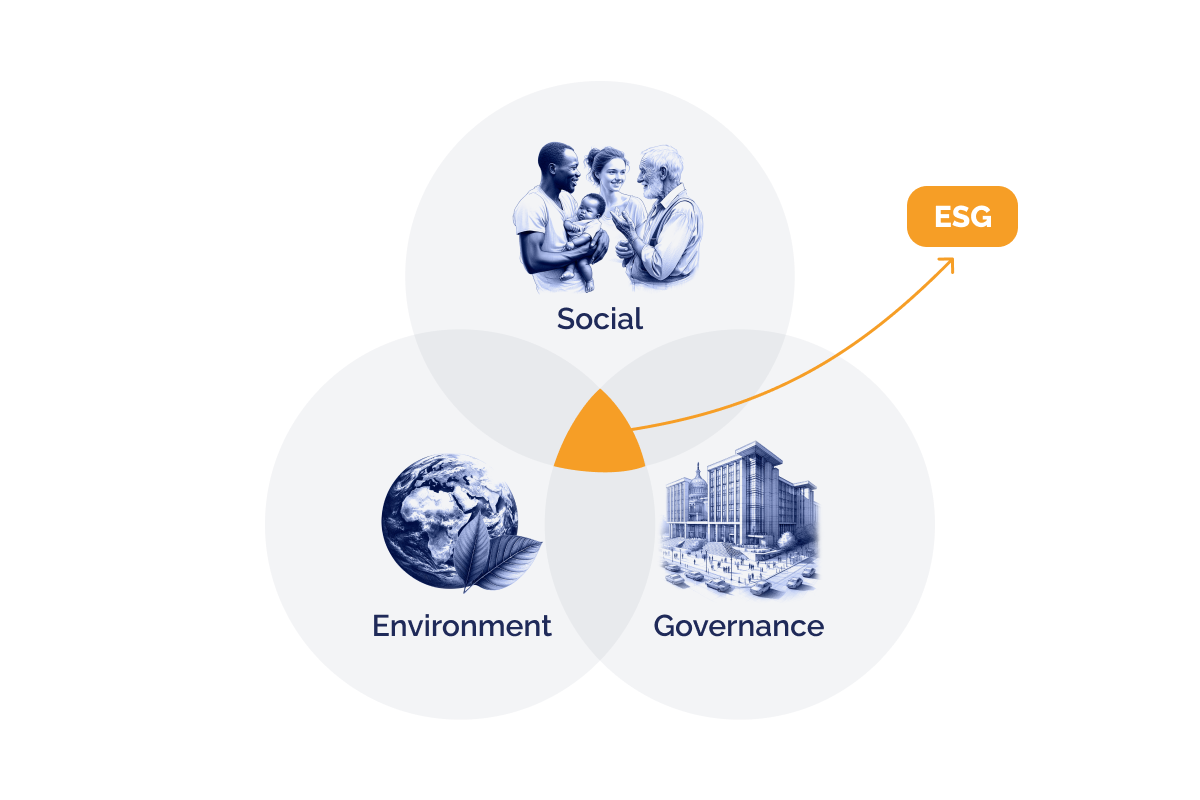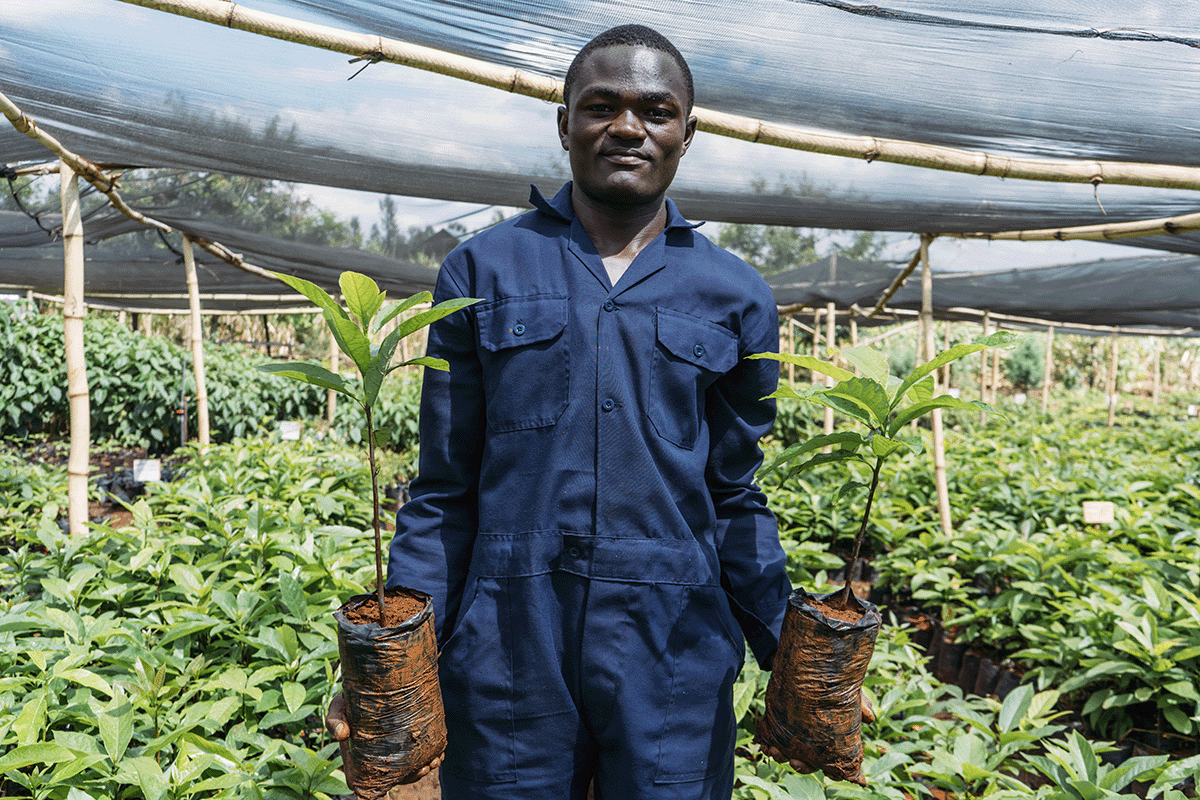As global awareness of environmental degradation and social inequality grows, businesses are increasingly shifting towards sustainable operations. The new Corporate Sustainability Reporting Directive (CSRD) exemplifies this transformation by mandating certain companies to disclose and improve their environmental and social impacts. It represents a strategic initiative that integrates sustainability into core business operations, reducing risks and enhancing competitiveness.
 Aerial view of a deciduous forest and the Earth's horizon. AI generated picture.
Aerial view of a deciduous forest and the Earth's horizon. AI generated picture.
Although the CSRD primarily targets larger corporations in the EU, smaller companies also feel its impact. Often, small and medium enterprises (SMEs) serve as suppliers to larger companies that require compliance, and they face increasing consumer and regulatory pressure to become more sustainable. This provides an incentive for smaller companies to align with the CSRD as far as it relates to them. Early compliance can benefit SMEs, providing them with an edge in aligning with CSRD requirements.
Read more: What is CSRD and how does it affect your business?
CSRD is a transformative approach by the European Union to enhance the transparency of businesses’ Environmental, Social, and Governance (ESG) impacts, aiming to provide stakeholders—including investors, customers, and regulatory bodies—with a detailed analysis of a company’s sustainability efforts and risks. It aims to standardise reporting to make comparisons easier, drive accountability, and encourage more sustainable business practices. Companies are required to report on a wide range of matters, including their carbon footprints and how they address this impact.
 Illustration describing ESG.
Illustration describing ESG.
The benefits of aligning with CSRD
Aligning your business with CSRD, especially at an early stage, can provide numerous benefits to your business. Let’s explore two of these important benefits.
1. Operational and strategic benefits
Adopting CSRD standards is a proactive measure that ensures your business is prepared for upcoming regulations. Regulatory landscapes are evolving rapidly as governments worldwide increasingly prioritise environmental sustainability. By aligning with CSRD now, your business can avoid the last-minute rush to comply with stringent regulations. This foresight mitigates potential legal and financial penalties and smooths your transition, allowing your company to adapt seamlessly without disruptive overhauls.
Read more: Overcoming sustainability challenges: practical solutions for your business
Furthermore, adopting these standards positions your company favourably among eco-conscious consumers and business partners. In today’s market, sustainability is a significant differentiator. Consumers are becoming more aware of environmental issues and are actively seeking out businesses that demonstrate genuine commitments. By aligning with CSRD, your business can tap into this growing market, enhancing your brand’s reputation and customer loyalty.
 Close-up of a man planting a tree seedling in a forest. AI generated picture.
Close-up of a man planting a tree seedling in a forest. AI generated picture.
Similarly, many business partners and larger corporations are now scrutinising their supply chains for sustainability compliance. By being ahead of the curve, you can secure and strengthen valuable partnerships.
Operational efficiency is another critical benefit of CSRD compliance. The directive encourages businesses to closely examine their resource usage and waste management practices. This introspection often reveals inefficiencies and opportunities for cost savings. For instance, energy-efficient processes and waste reduction strategies can lower operational costs and minimise your environmental footprint. This dual advantage can significantly enhance your business's overall efficiency and profitability, creating a win-win scenario.
Read more: The power of sustainability: Why investing in sustainability drives faster company growth
2. Environmental and social benefits
Aligning with CSRD is a clear demonstration of your business’s commitment to driving positive societal change. This alignment goes beyond the realm of corporate social responsibility; it shows that your company is willing to take actionable steps to support the environment. This commitment can inspire your employees, fostering a culture of pride and purpose within your organisation, which is essential for long-term success and employee retention.
 Meadow filled with biodiversity. AI generated picture.
Meadow filled with biodiversity. AI generated picture.
Supporting biodiversity is another crucial aspect of CSRD compliance. Biodiversity is vital for ecosystem stability and resilience. By aligning with CSRD, your business can play a part in preserving and enhancing biodiversity. This might involve initiatives such as sustainable sourcing practices, reducing habitat destruction, and supporting conservation projects. These efforts not only protect wildlife but also ensure the sustainability of the natural resources your business might depend on.
Read more: The power of DGB Group’s high-quality carbon projects in Kenya
Contributing to global goals, such as the UN's Sustainable Development Goals (SDGs), is another significant benefit of CSRD alignment. SDGs provide a universal framework for addressing the world’s most pressing challenges, from poverty and inequality to environmental degradation. By aligning your business practices with these goals, you contribute to the global effort to create a better and more sustainable future. This alignment enhances your corporate image and opens up opportunities for collaboration with other like-minded partners and stakeholders, potentially leading to innovative and impactful projects.
Why should your business act now?
Evaluating your company's sustainability targets and implementation methods is essential in our current dynamic environmental context. Ask yourself, what specific sustainability goals have I set, and how I am going to achieve them? Examine how your approach fits in with wider environmental goals and worldwide efforts. Taking action now is sensible, feasible, and more cost-effective. When you start now on your sustainability strategy and reporting, it isn't just prudent—it brings multiple advantages.
1. Saving costs
Early adoption of CSRD considerations can significantly reduce future costs associated with compliance. As regulatory standards tighten and the cost of carbon compensation (carbon credits) rises due to increasing demand, taking proactive steps now can lead to substantial savings. By integrating sustainability measures early, your business can avoid higher compliance costs and capitalise on financial incentives and reduced compensation costs available for early adopters.
Download our CSRD brochure to find out more
2. Saving time
Starting your carbon footprint measurement early allows you to establish a robust data collection framework. Understanding what data to gather and who to consult within your organisation leads to more efficient processes. This early start enables your company to streamline data collection, ensuring accuracy and comprehensiveness. Consequently, you save time in the long run by avoiding the need for rushed and complicated data collection to meet compliance deadlines.
Learn how to measure your carbon footprint
3. Starting small
Starting your sustainability journey with simple, impactful actions sets a strong foundation for more comprehensive measures later on. Measuring your carbon footprint with DGB’s tools is a straightforward yet significant step. Our services are designed to help you start small, providing scalable solutions that grow with your environmental strategies. By taking manageable initial steps, you build momentum and establish a culture of sustainability within your organisation.
Read more: Sustainability simplified: Carbon footprinting for beginners
4. Doing the right thing
Committing to sustainability goes beyond mere legal compliance; it reflects your company’s values and ethical responsibilities towards a sustainable future. This commitment not only fulfils regulatory requirements but also enhances your brand reputation. Demonstrating genuine dedication to environmental stewardship resonates with consumers, investors, and other stakeholders who value ethical responsibility, thereby strengthening your brand’s credibility and appeal.
Read more: How to reduce your business’ travel emissions through nature
5. Being a preferred supplier
Positioning your business as a preferred partner in supply chains is increasingly important as large corporations prioritise sustainability compliance and environmental accountability. By aligning with CSRD standards, your company can meet the sustainability criteria of major clients and partners. This alignment opens up new business opportunities and secures your position in the market as a reliable and forward-thinking supplier, enhancing your competitive edge in the industry.
Read more: 5 Sustainable business practices to achieve net zero
Becoming sustainable with DGB Group
At DGB Group, we champion proactive environmental stewardship. Our innovative solutions, including detailed carbon footprint analyses and verified carbon unit offerings, empower your business to lead in sustainability. Let’s explore how we can help you become more sustainable.
 DGB team member working in a tree nursery. Hongera Reforestation Project, DGB.
DGB team member working in a tree nursery. Hongera Reforestation Project, DGB.
1. Carbon footprint analysis
Under the CSRD, companies must report on all three scopes of emissions. We can assist you with detailed carbon footprint assessments using our user-friendly CO2 Export tool. This tool allows you to add data and locations, compare years, and view reports, helping to quantify your environmental impact and guide targeted sustainability strategies.
Find out how to measure your carbon footprint
2. Carbon footprint reduction
To holistically address carbon footprints, companies must reduce and compensate for their impact. DGB offers you customised solutions to both reduce and offset your carbon footprint. Our verified carbon units comply with international standards, providing an impactful way to become more sustainable and help restore nature. Our carbon units are created by our nature-based projects that restore ecosystems, revitalise biodiversity, and support local communities. Therefore, if you compensate for your emissions with DGB, you are making a positive impact beyond your carbon footprint.
Find out more about our carbon units
Aligning with CSRD is not just about compliance; it's about seizing the opportunity to lead in sustainability, reducing risks, enhancing competitiveness, and making a meaningful contribution to the environment. Act now and position your business for a sustainable future.
Let DGB guide you through the complexities of becoming sustainable.
Contact our experts today and start your sustainability journey





